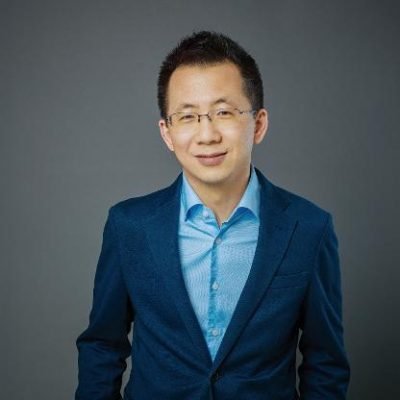Zhang Yiming wiki, bio, age, height, tiktok, girlfriend, net worth, house

Zhang Yiming (born on April 10, 1983, in Longyan, Fujian) is a Chinese tycoon web business person. He established ByteDance in 2012 and fostered the news aggregator Toutiao and the video-sharing stage TikTok (Douyin), previously known as Musical.ly. As per Bloomberg Billionaires Index Zhang's own abundance is assessed at $45.5 billion.
Early life and vocation
Zhang was brought into the world on April 10, 1983. In 2001, he enlisted at Nankai University in Tianjin, where he studied microelectronics prior to changing to computer programming and graduated in 2005. He met his better half at college.
In February 2006, Zhang turned into the fifth worker and the main architect at the movement site Kuxun, and he was elevated to the specialized chief a year later.
In 2008, Zhang left Kuxun to work for Microsoft, yet he felt smothered by the corporate principles of the organization. He before long left Microsoft to join the startup Fanfou, which ultimately fizzled. In 2009, when Kuxun was going to be gained by Expedia, Zhang assumed control over Kuxun's land search business and began 99fang.com, his first organization.
ByteDance
Zhang believed that Chinese cell phone clients were battling to discover data in versatile applications accessible in 2012 and the inquiry goliath Baidu was blending list items with undisclosed promoting. His vision was to push pertinent substance to clients utilizing suggestions produced by computerized reasoning.
This vision, notwithstanding, was not shared by most investors, and he neglected to get subsidizing until Susquehanna International Group consented to put resources into the startup.
In August 2012, ByteDance dispatched the Toutiao news application and inside two years pulled in excess of 13 million day-by-day clients. Sequoia Capital, which dismissed Zhang the first run-through, came around and drove a US$100 million interest in the organization in 2014.
Zhang zeroed in on extending ByteDance universally, rather than other Chinese tech CEOs who zeroed in on the homegrown development of their organizations.
Zhang demanded that ByteDance's work environment profitability application Lark be focused on the American, European, and Japanese business sectors, instead of restricting the concentration to China as initially proposed.
Zhang's administration style with ByteDance was demonstrated on US tech organizations, for example, Google, and included every other month official Q&A events and deterring representatives from alluding to him as "chief" or "President," just like the Chinese show.
In September 2015, ByteDance dispatched its video-sharing application TikTok (known as Douyin in China) with the little exhibition. The item was a moment hit with twenty to thirty-year-olds and got well known around the world. ByteDance purchased Musical.ly a year later for US$800 million and coordinated it into TikTok.
ByteDance's first application, Nathan Duanzi, was closed down in 2018 by the National Radio and Television Administration.
Accordingly, Zhang gave a conciliatory sentiment expressing that the application was "disproportionate with communist basic beliefs", that it had a "feeble" execution of Xi Jinping Thought, and guaranteed that ByteDance would "further extend collaboration" with the decision Chinese Communist Party to more readily advance its strategies.
Actually 2018, with more than 1 billion month-to-month clients across its versatile applications, ByteDance is esteemed at US$75 billion, outperforming Uber to turn into the most important startup on the planet. Zhang's own abundance is assessed at $22.6 billion, making him the ninth most extravagant individual in China.
In September 2020, the United States Department of Justice alluded to Zhang as a "mouthpiece" of the Chinese Communist Party in a lawful recording.
In May 2021, he said that he will venture down as CEO and will be prevailing by Rubo Liang.
Honours and acknowledgment
Zhang was named in the 2013 China 30 Under 30 rundown by Forbes. In 2018, he was remembered for Fortune magazine's 40 Under 40 rundown. Zhang was named one of Time magazine's 100 Most Influential People of 2019.